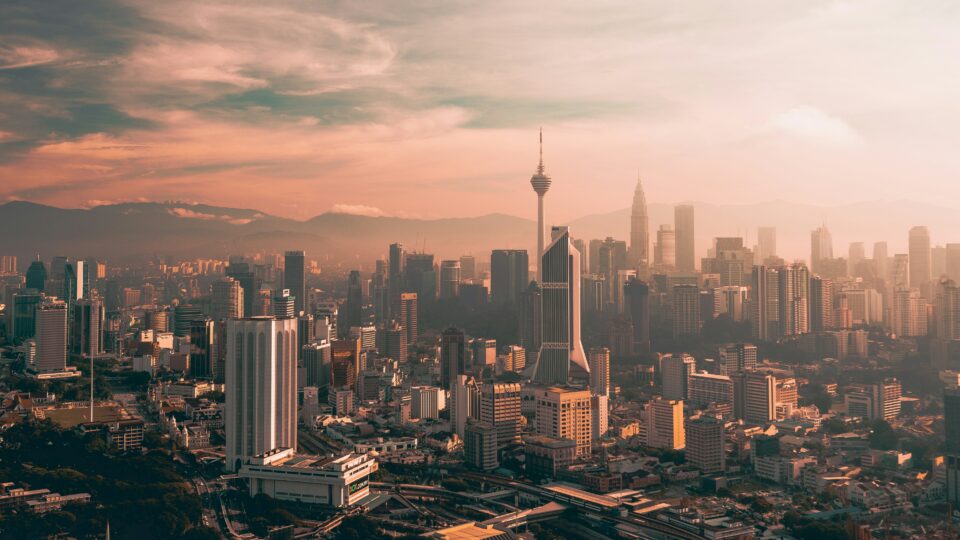
There were 36 of us in the room, representing at least twelve churches from different denominations. There were senior pastors of established churches and young adults just starting to think about church planting. For half a day, we talked and prayed about the need for more church leaders who might one day head up or join teams to plant healthy churches throughout Kuala Lumpur and the greater Klang Valley region.
The Seed of the Word
In the parable of the soils, the seed is the word of God (Luke 8:11). By God’s grace, this seed is being faithfully sewn throughout Kuala Lumpur. I’ve been told that 30 years ago the phrase “expositional preaching” was nothing more than gibberish to the average church member in Kuala Lumpur. Today, there are several churches known for their commitment to expositional preaching. Several seminaries, training institutes, and conferences aim to equip growing preachers who will rightly handle the word of truth (2 Timothy 2:15).
Nowadays it’s not uncommon to find a pastor who is committed to gospel-centered and Christ-centered ministry. These men are seeking to preach Christ from every part of Scripture; they want the gospel to shape all they do as a church—from their songs to their pastoral counsel and so on.
When we first arrived, I was surprised to hear about local conferences featuring Christian leaders like Mark Dever, Jordan Kauflin, and Brian Tabb. There are more quality conferences hosted in Kuala Lumpur than I could ever attend. Yes, the number of Christians who attend these conferences are comparatively few, and the churches they represent are still fewer. But I thank God there exists a growing hunger to know, be shaped by, and to live out sound theology.
I’ve seen all these things firsthand in the international church I’ve had the privilege of shepherding. It’s been a deep source of encouragement and joy.
Rocks and Thorns
And yet, it’s not the parable of the “soil.” It’s the parable of the “soils.” Yes, there exists good soil in Kuala Lumpur, but there are other soils that aren’t conducive to God’s word. Sometimes, those soils are present in the hearts of would-be sowers themselves. Rocks and thorns, persecution and worldly cares, can not only stifle the reception of the word of God, but the sowing of it as well.
While there was a beautiful diversity of people, churches, and denominations represented in that room, there was a glaring omission: there wasn’t a single person from the largest people group in Malaysia, the Malay. (Of course, the very presence of a Malay Christian converted from Islam would have caused a host of potential security issues, but that’s a different story altogether.) While Chinese-Malaysians, Indian-Malaysians, and most expats are free to practice whatever religion they wish, it remains illegal for the Malay to convert from Islam. So evangelizing the Malay comes with immense risk. It opens the door and invites tribulation and persecution. But the need is immense. According to Joshua Project, Malay people are one of the 50 largest unreached people groups.
And yet, for some local non-Malay Christians, even the notion of a Malay following Christ is a logical impossibility. I heard the story of one Christian who was asked by a Malay friend if she could come to church with her. Her response? Rebuke. She rebuked her Malay friend for even raising the idea. “You can’t come to church with me! You’re a Muslim!” The religious freedom afforded to Chinese-Malaysians, Indian-Malaysians, and most expats—combined with the threat of government-sanctioned opposition toward those who proselytize Malays—has birthed in the minds of some well-meaning Christians a mental block. “Malay = Muslim.” Period.
When that combination mixes with decades of ethnic division, prejudice, and strife—at times intentionally utilized by the Malaysian government—it’s not merely a “period” at the end of a sentence. It’s the “period” that ends the entire story. Add to that a healthy dose of “worldly cares” about the social and economic losses that can come to an individual, a family, and a church involved in such seed-sowing. For some, those thorn-infested barriers are too sharp and insurmountable.
Work to Be Done
Two years ago, I couldn’t have envisioned sitting in a room with three dozen believers from a variety of churches talking about gospel-shaped leadership and collaboration on church planting. Those are conversations you have in a classroom at Southern Seminary, not in an office building in the center of Kuala Lumpur! What a joy that the word of God has fallen on good soil here.
But there’s much work to be done. Malaysian Christians need to be discipled wisely about persecution. We need to apply the radical, reconciling nature of the gospel skillfully, patiently, and courageously to decades of ethnic division, prejudice, and strife. This is hard but necessary work. As every Christian from every generation and every culture has done before, there’s a need for the church in Kuala Lumpur to continually count the cost, to pick up their cross, and to follow the Great Sower.
Want More Content Like This?
We will deliver Reaching & Teaching articles and podcast episodes automatically to your inbox. It's a great way to stay on top of the latest news and resources for international missions and pastoral training.
